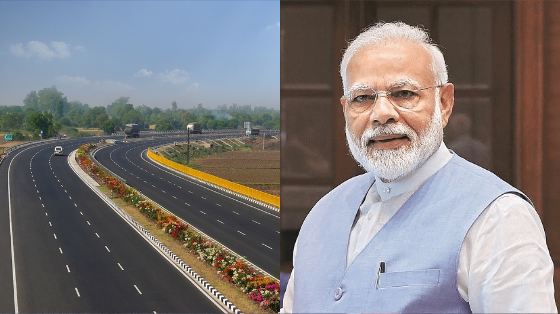Prime Minister Modi is on a visit to Assam and West Bengal, one of the two states bound for polls this year. In both states, the Prime Minister has inaugurated a slew of infrastructure projects including highways, railway lines, dams, and bridges. “Those who ruled for decades since Independence believed Dispur was too distant from Delhi. ‘Dilli ab door nahi aapke darwaaze par hai’ (Delhi is not far now, it stands at your doorstep,” he told to the large crowd gathered to hear Prime Minister.
Prior to that, Prime Minister Modi inaugurated many infrastructure projects in two other poll-bound states in Southern India, Kerala, and Tamil Nadu. “The great Malayalam poet Kumaran Asan said, ‘I’m not asking your caste, sister, I ask for water. I’m thirsty’. Development and good governance do not know caste, creed, race, gender, religion or language. Development is for everyone,” said PM Modi.
Moreover, in the last union budget a few weeks ago, Finance Minister Nirmala Sitharaman announced the following infrastructure projects for the following states:
- 3,500 km of National Highway works in Tamil Nadu at an investment of Rs. 1.03 lakh crores. These include the Madurai-Kollam corridor and Chittoor-Thatchur corridor. Construction will start next year.
- 1,100 km of National Highway works in Kerala at an investment of Rs. 65,000 crores including a 600 km section of the Mumbai-Kanyakumari corridor in Kerala.
- 675 km of highway works in the state of West Bengal at a cost of Rs. 25,000 crores including up-gradation of the existing Kolkata –Siliguri road.
- National Highway works of around Rs. 19,000 crores are currently in progress in the State of Assam. Further works of more than Rs. 34,000 crores were proposed in the budget.
So, what all these infrastructure projects, which are being inaugurated or have been announced, tell about the electoral strategy of the BJP and development strategy of the Modi government.
The Modi government wants to make infrastructure building a key issue (read electoral issue) in the country. For decades, elections in India have been fought on rampant populism, while freebies became the only criteria for winning. Akhilesh Yadav came to power in UP in 2012 solely on the promise of Laptop distribution; Congress won three states in 2018 (MP, Rajasthan, and Chattishgarh) on the promise of farm loan waiver. The UPA government tried to wash away all its sins with the Right to Food Act (although it lost).
The allure of freebies has always driven a large part of the population towards the political parties and the fighting election in the name of freebies has been internalized in the political system. Pickup any manifesto of political parties, the majority of the pages are filled with promise of freebies.
PM Modi’s aim is to make infrastructure building a key electoral issue in the country so that more than 30 major political parties of the country promise to voters to build roads, bridges, sanitation system, water supply, dams, and so on instead of just promising unemployment benefit scheme, free ration, laptops, and utensils.
The Modi government made significant investments in public transport, highway construction, railways, waterways, and air connectivity. The large public investment in infrastructure was supported by the oil bonanza which the government got in its initial years due to a slump in crude prices. The investment in the road construction sector by the UPA government was very low because various welfare programmes like MGNREGA had constrained them from financing infrastructure building.
If infrastructure creation becomes a major electoral issue in the country, the states ruled by the BJP as well as those ruled by the opposition would invest heavily in building roads, bridges, and so on. And this will start a virtuous cycle of investment-driven economy, instead of freebies-led demand driven economy which kept the country backward for decades.
